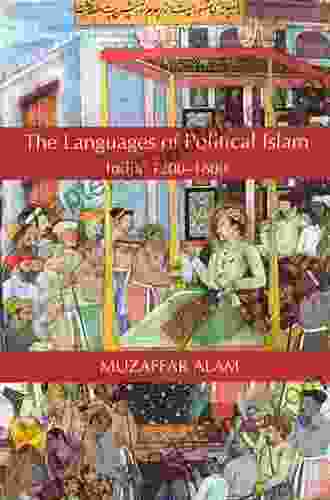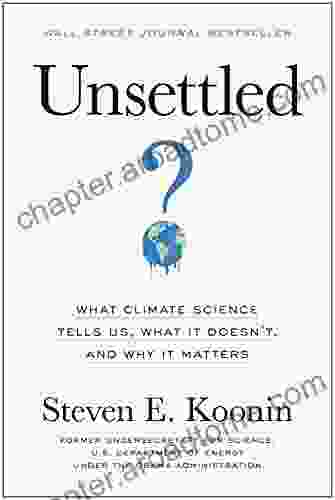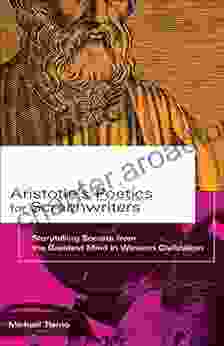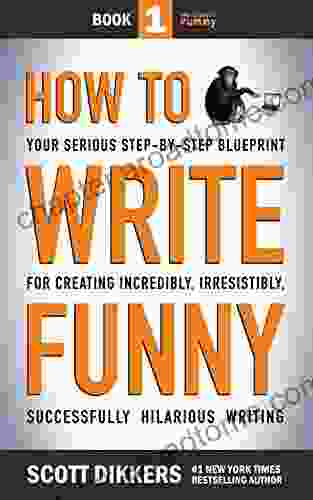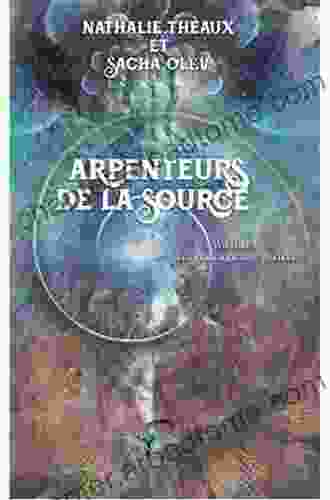Unraveling the Linguistic Tapestry of Political Islam in India: An Exploration of "The Languages of Political Islam in India 1200-1800"

4.2 out of 5
| Language | : | English |
| File size | : | 532 KB |
| Text-to-Speech | : | Enabled |
| Screen Reader | : | Supported |
| Enhanced typesetting | : | Enabled |
| Print length | : | 243 pages |
A Journey into the Intricate Web of Language, Power, and Muslim Identity
In the tapestry of Indian history, the intricate threads of political Islam have left an enduring mark. The book "The Languages of Political Islam in India 1200-1800," an exceptional work of scholarship by Dr. Richard Eaton, invites us on a captivating journey into this complex landscape, unveiling the profound interplay between language, power, and the formation of Muslim identities.
Dr. Eaton, a renowned historian and expert in Islamic studies, delves into the rich historical record to uncover the linguistic tapestry of political Islam in India during the medieval and early modern periods. Through a meticulous examination of literary works, inscriptions, and other primary sources, he sheds light on how different languages and linguistic practices were used to articulate political ideologies, shape religious discourse, and construct Muslim identity.
The Linguistic Landscape: A Dynamic Canvas
The languages of political Islam in India were not static but evolved and transformed over time. Arabic, as the language of the Quran and Islamic scholarship, held a revered status and served as a common denominator for Muslims across the subcontinent. However, alongside Arabic, Persian emerged as a prominent literary and administrative language, particularly during the Mughal era.
As Dr. Eaton demonstrates, the use of these languages was not merely a matter of linguistic preference but reflected the complex political, social, and cultural forces at play. The dominance of Persian in courtly circles and administrative records signified the Mughal rulers' desire to project an image of imperial authority and cultural refinement.
In addition to Arabic and Persian, local vernacular languages also played a significant role in the expression of political Islam. Urdu, a hybrid language that emerged from the interaction of Persian and local North Indian dialects, became a vital medium for communicating religious and political ideas to a wider audience. Other vernacular languages, such as Bengali and Tamil, were also employed to convey Islamic teachings and articulate local Muslim identities.
Language as a Tool of Power and Legitimacy
Dr. Eaton argues that language was not simply a neutral medium of communication but a potent tool used by political and religious leaders to assert authority and legitimize their rule. The use of Arabic and Persian, languages associated with Islamic scholarship and imperial power, enabled rulers to project an image of religious legitimacy and cultural sophistication.
Furthermore, the appropriation and transformation of these languages by Muslim communities allowed them to develop distinct cultural and intellectual traditions. Through the creation of vernacular literature, religious texts, and political treatises, Muslim scholars and intellectuals played a crucial role in shaping Muslim identity and articulating their political aspirations.
The book also highlights the contested nature of language use. Different groups and individuals within the Muslim community often engaged in debates over which language was most appropriate for expressing Islamic ideas and practices. These debates reflected the complex social and political dynamics within Muslim society and the ongoing process of identity formation.
Historiography and the Construction of Muslim Identity
Dr. Eaton's work not only examines the linguistic tapestry of political Islam but also challenges traditional historiographical approaches to the study of Muslim history in India. By placing language at the center of his analysis, he opens up new perspectives on the construction of Muslim identity and the formation of political communities.
The book critiques the tendency to view Muslim history solely through the lens of religious affiliation, arguing that language and linguistic practices played a more significant role in shaping the experiences and identities of Muslims in India. Dr. Eaton's approach encourages a more nuanced and inclusive understanding of Indian history, recognizing the diverse and dynamic nature of Muslim identity.
: A Landmark Contribution to the Study of Islam in India
"The Languages of Political Islam in India 1200-1800" is a groundbreaking work that makes a significant contribution to the study of Islam in India. Dr. Richard Eaton's meticulous research and insightful analysis provide a comprehensive and nuanced understanding of the linguistic tapestry that shaped political Islam and Muslim identities during the medieval and early modern periods.
This book is essential reading for scholars of Islamic history, South Asian history, linguistics, and anyone interested in the complex interplay between language, power, and identity. Its insights challenge traditional historiographical approaches and offer fresh perspectives on the rich and diverse history of Muslim communities in India.
Through its exploration of the languages of political Islam, "The Languages of Political Islam in India 1200-1800" invites us to reconsider our understanding of Muslim history and the multiple ways in which language has shaped the human experience.
4.2 out of 5
| Language | : | English |
| File size | : | 532 KB |
| Text-to-Speech | : | Enabled |
| Screen Reader | : | Supported |
| Enhanced typesetting | : | Enabled |
| Print length | : | 243 pages |
Do you want to contribute by writing guest posts on this blog?
Please contact us and send us a resume of previous articles that you have written.
 Book
Book Novel
Novel Page
Page Chapter
Chapter Text
Text Story
Story Genre
Genre Reader
Reader Library
Library Paperback
Paperback E-book
E-book Magazine
Magazine Newspaper
Newspaper Paragraph
Paragraph Sentence
Sentence Bookmark
Bookmark Shelf
Shelf Glossary
Glossary Bibliography
Bibliography Foreword
Foreword Preface
Preface Synopsis
Synopsis Annotation
Annotation Footnote
Footnote Manuscript
Manuscript Scroll
Scroll Codex
Codex Tome
Tome Bestseller
Bestseller Classics
Classics Library card
Library card Narrative
Narrative Biography
Biography Autobiography
Autobiography Memoir
Memoir Reference
Reference Encyclopedia
Encyclopedia Paul Galbreath
Paul Galbreath Netta Newbound
Netta Newbound William Harris
William Harris Michael Olive
Michael Olive Natali Valdez
Natali Valdez Sylvia Boorstein
Sylvia Boorstein Michael Wert
Michael Wert Steven Onahi
Steven Onahi Raechel Henderson
Raechel Henderson Richard Koszarski
Richard Koszarski Nick Flynn
Nick Flynn Stefan E Schulenberg
Stefan E Schulenberg Michael Ford
Michael Ford Mikhila Mcdaid
Mikhila Mcdaid Molly Smith
Molly Smith Walter Crinnion
Walter Crinnion New England Wild Flower Society
New England Wild Flower Society Nina Moreno
Nina Moreno David Furlong
David Furlong Robert Ford Campany
Robert Ford Campany
Light bulbAdvertise smarter! Our strategic ad space ensures maximum exposure. Reserve your spot today!
 John MiltonFollow ·14k
John MiltonFollow ·14k Isaac MitchellFollow ·19k
Isaac MitchellFollow ·19k John ParkerFollow ·11.3k
John ParkerFollow ·11.3k Raymond ParkerFollow ·10.7k
Raymond ParkerFollow ·10.7k Theodore MitchellFollow ·3.3k
Theodore MitchellFollow ·3.3k Dennis HayesFollow ·11.1k
Dennis HayesFollow ·11.1k John UpdikeFollow ·18.8k
John UpdikeFollow ·18.8k Allan JamesFollow ·17.2k
Allan JamesFollow ·17.2k
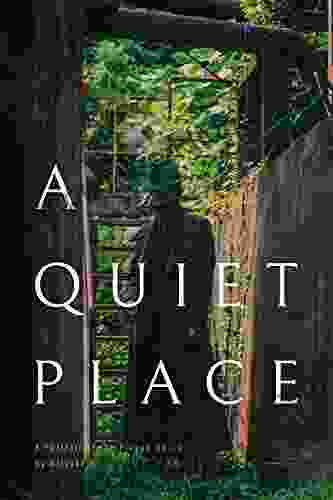
 Samuel Beckett
Samuel BeckettPortrait of the Plague Doctor: A Chilling Tale of Fear...
Prologue: A...

 Elliott Carter
Elliott CarterTrends in Modeling and Simulation Studies in...
Unveiling the Convergence of...

 Natsume Sōseki
Natsume SōsekiCells For Kids: Science For Children
Unlock the Microscopic...
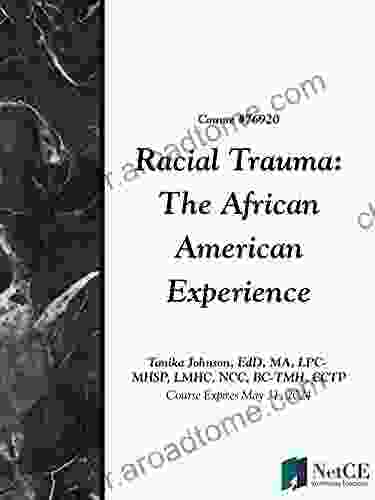
 Anthony Wells
Anthony WellsUnlock the Power of Understanding: Embrace the African...
Embark on a Journey of Truth,...

 Forrest Reed
Forrest ReedBreaking Free: Healing from Toxic Relationships Between...
Are you struggling...
4.2 out of 5
| Language | : | English |
| File size | : | 532 KB |
| Text-to-Speech | : | Enabled |
| Screen Reader | : | Supported |
| Enhanced typesetting | : | Enabled |
| Print length | : | 243 pages |


